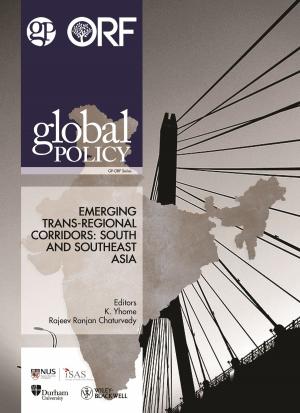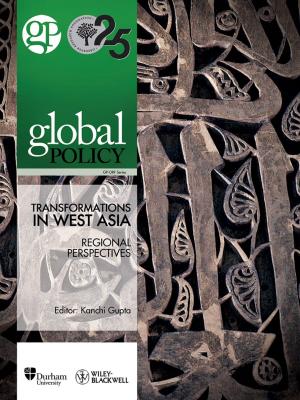Digital Debates: CyFy Journal Volume 3 (2016)
Nonfiction, Computers, Networking & Communications, Computer Security, Operating Systems, Application Software| Author: | Global Policy | ISBN: | 9781370028481 |
| Publisher: | Global Policy | Publication: | January 3, 2017 |
| Imprint: | Smashwords Edition | Language: | English |
| Author: | Global Policy |
| ISBN: | 9781370028481 |
| Publisher: | Global Policy |
| Publication: | January 3, 2017 |
| Imprint: | Smashwords Edition |
| Language: | English |
Debates around internet policy have taken centre stage in domestic politics and international relations alike. While national debates are shaped by local priorities, politics and contextual ambitions, cyber diplomacy differs from traditional diplomacy in two important respects. First, the stakeholders invested in internet policy include not just states and governments but the industry and civil society as well. Second, the norms that define conduct over cyberspace remain diverse, divergent and fluid. Creating a universal set of norms to guide policymaking on digital spaces is further complicated as individual sovereign assessments are significantly implicated by regional and strategic tensions unique to them.
Concurrently, the world is also witnessing two parallel sets of conversations on digital policy. One is largely focused on translating rights from the online world to the offline world. This conversation is premised on a clear understanding of what the rights entail in the offline wold; and the central task that remains is focussed on demarcating the contours of those rights online. The other, related, conversation attempts to negotiate the very nature of, and need for these rights. For instance, the European Union holds data protection in the highest regard, enshrining it within the European Charter of Fundamental Rights. At the same time, India, the largest democracy in the world, is yet to explicitly recognise a right to privacy within its Constitution. The difference in these approaches transcends legal regimes. The social contract in Europe, a product of legal, cultural and political factors, pried access to data away from the regulators and ceded agency over it to the private citizen. This equilibrium is today reflected in EU data protection norms. In India, where norms of social behaviour are evolving concurrently with lawmaking, there is no national consensus on a “right to privacy”, with some constituencies alleging that a “western” model may not be fully appropriate, or would need significant redefinition when applied to the Indian context. In India as in other emerging economies, cyberspace regulation has shouldered the additional burden of delineating and guaranteeing rights that are not necessarily available in offline spaces.
The real challenge therefore lies in creating a public sphere and a digital public sphere that attends to the integrity of both spaces.
Debates around internet policy have taken centre stage in domestic politics and international relations alike. While national debates are shaped by local priorities, politics and contextual ambitions, cyber diplomacy differs from traditional diplomacy in two important respects. First, the stakeholders invested in internet policy include not just states and governments but the industry and civil society as well. Second, the norms that define conduct over cyberspace remain diverse, divergent and fluid. Creating a universal set of norms to guide policymaking on digital spaces is further complicated as individual sovereign assessments are significantly implicated by regional and strategic tensions unique to them.
Concurrently, the world is also witnessing two parallel sets of conversations on digital policy. One is largely focused on translating rights from the online world to the offline world. This conversation is premised on a clear understanding of what the rights entail in the offline wold; and the central task that remains is focussed on demarcating the contours of those rights online. The other, related, conversation attempts to negotiate the very nature of, and need for these rights. For instance, the European Union holds data protection in the highest regard, enshrining it within the European Charter of Fundamental Rights. At the same time, India, the largest democracy in the world, is yet to explicitly recognise a right to privacy within its Constitution. The difference in these approaches transcends legal regimes. The social contract in Europe, a product of legal, cultural and political factors, pried access to data away from the regulators and ceded agency over it to the private citizen. This equilibrium is today reflected in EU data protection norms. In India, where norms of social behaviour are evolving concurrently with lawmaking, there is no national consensus on a “right to privacy”, with some constituencies alleging that a “western” model may not be fully appropriate, or would need significant redefinition when applied to the Indian context. In India as in other emerging economies, cyberspace regulation has shouldered the additional burden of delineating and guaranteeing rights that are not necessarily available in offline spaces.
The real challenge therefore lies in creating a public sphere and a digital public sphere that attends to the integrity of both spaces.















